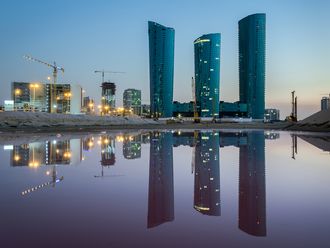
Manama: The first woman to be elected to parliament in the Gulf blamed the hegemony of Islamist societies and women’s “hibernation” for the failure of female candidates to win in elections.
Lateefa Al Gaood, narrowly lost in the 2002 Bahraini elections, but won in the 2006 polls after she ran unopposed in her constituency.
“There is a deplorable lack of awareness among voters about the positive roles that women can play and religious societies have compounded the situation by not selecting women on their lists,” Al Gaood said.
“There is also a problem with the candidates who suffer from hibernation. They do not allow themselves enough time to prepare for the elections and have very little or no interaction with voters,” she said.
Women should have a stronger social presence and should interact at least with the female voters to convince them of their ability to represent them and serve their interests in parliament, Al Gaood said.
“Women should appreciate that people do not vote for a candidate just because they have read her programme or plans. This is an accumulation process where women, like men in this case, need to work gradually on changing people’s habits and mindsets through better, positive and direct interaction. It may take years, but it is a gradual process and candidates need to appreciate the significance of such an approach,” said Lateefa who narrowly lost in the 2002 elections, but won in the 2006 polls after she ran unopposed in her constituency.
Candidates’ moves should focus on their constituencies so that voters get to know them better instead of working nationwide, she said.
“Women should also understand that competence is not the one major factor. There are women who are much more competent than men in specific fields, but do not get elected because they are not supported by a political or religious society or because voters do not know them. It is not enough to be professionally competent or an achiever. There are many more factors when it comes to elections,” she said. “Unfortunately, many really competent women do not want to run in elections unless they are sure they will win. It simply does not work out that way.”
Several women have called for the introduction of a quota for women to help them overcome social obstacles and secure seats. However, the Supreme Council for Women, the official body tasked with elevating the status of women in the country, has opposed the calls, saying that the quota system was unconstitutional and clashed with a fundamental principle in the constitution that all citizens, men and women, were equal.












